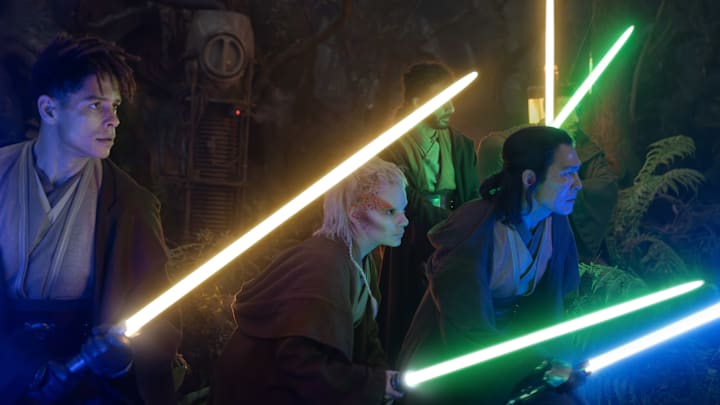The next Star Wars series, The Acolyte, has been billed as a show that will be critical of the Jedi. While this is not the first time the franchise has been analytical of these mystical space wizards, the series should take care to make a distinction between the idea of the Jedi and the Jedi Order as an institution.
The Acolyte absolutely must make this important distinction about the Jedi and the Jedi Order.
The creator of this new series, Leslye Headland, has not been shy about saying this show will not portray the Jedi in the best light. This makes sense because the show takes place about 100 years before The Phantom Menace, which means the Jedi Order is roughly 120 years away from its collapse and the near extinction of all the Jedi with Order 66.
However, Headland has also pointed out that the Jedi often have good intentions but that they do not always result in good things happening or the Jedi acting in the most righteous ways. This is a good sign for those hoping this show will not completely dismiss the Jedi as a negative force in the galaxy.
Unfortunately, many fans hold that view. Many also hold the view that Palpatine shared with Anakin Skywalker in Revenge of the Sith, that fundamentally, the Jedi and the Sith are the same.
It is important to remember that the Jedi Order and the Jedi themselves, or the idea of the Jedi, are two fundamentally different things. The Order was a fairly rigid and hierarchical institution that clearly overlapped with the political body of the Senate. One could argue that the Jedi were never meant to be organized in such a way. Becoming a quasi-political body that had power and a vested interest in maintaining that power could have been what truly corrupted the Order and led to its downfall.
Yet, to criticize those aspects of the Order while at the same time ignoring the high ideals of the Jedi and disregarding them as a blight on the galaxy is wrongheaded. That is essentially the view presented by IGN in this video from a few months ago. The Jedi are presented as toxic, misguided, and obsessed with bloodlines and heritage. This completely misses the higher ideals of compassion, selflessness, diplomacy, and sacrifice that are at the core of what it means to be a Jedi.
Ultimately, "Jedi" is just a label. It really does not mean Force user or whether your lightsaber is blue or green. What is so inspiring about the Jedi is that they are a beacon of hope to the galaxy. Anyone can be a Jedi. By solving a work dispute with grace and humility rather than anger and bombast, one is being a Jedi. By stopping and helping someone who has dropped something or tripped and fell, one is being a Jedi. Sure, those actions and traits do not belong to the Jedi, but the Jedi, at their best, do everything to uphold those values, which can inspire others to do the same.
While The Acolyte will surely be critical of the Jedi Order as an institution, it is absolutely essential to remind viewers that what it means to be a Jedi at its core is to be a good person and to make the right decision when the chips are down. This idea is at the core of Star Wars and must be continued in this series.
